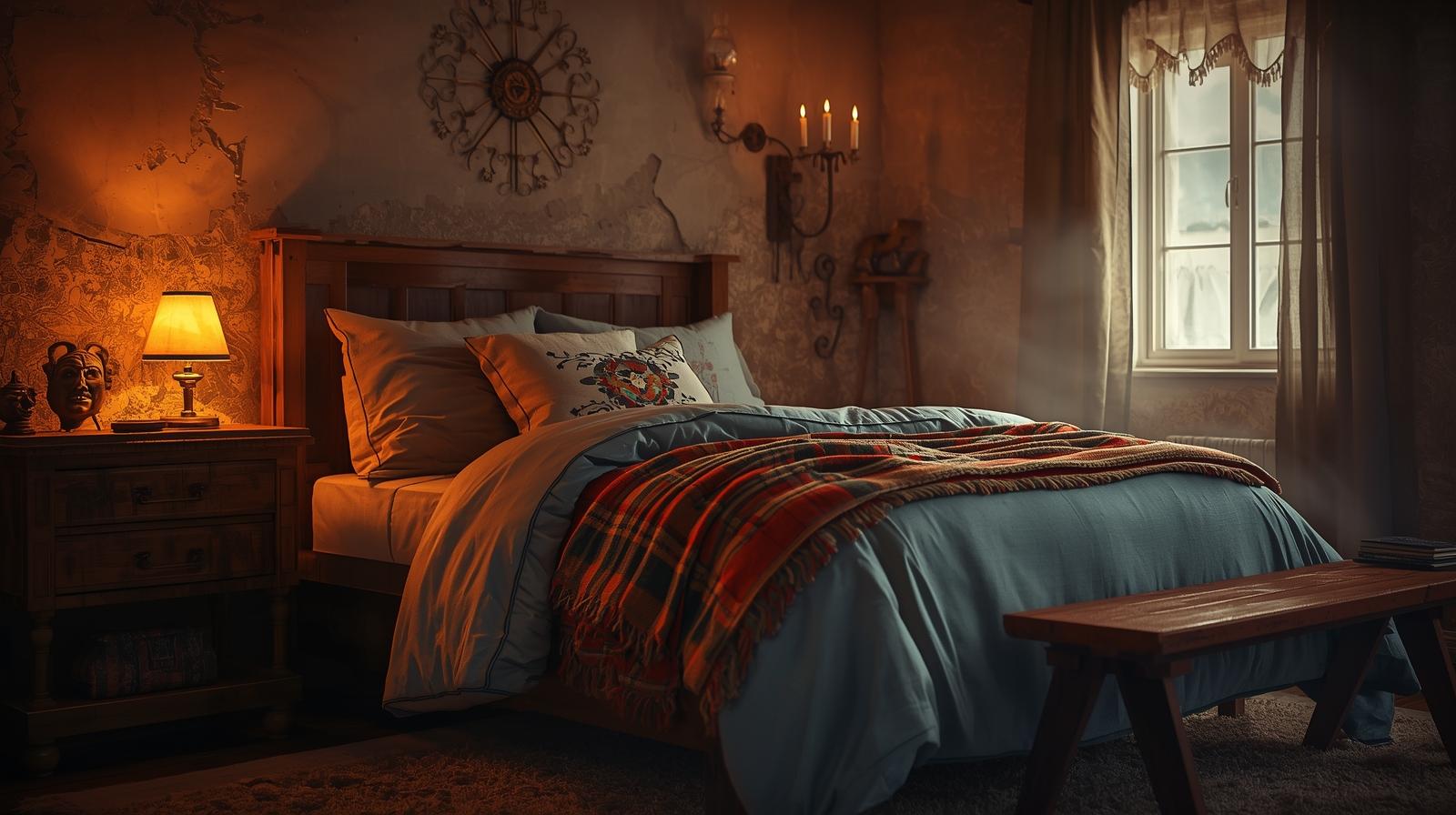Morning Routine & Sleep Quality
Introduction: The Surprising Link Between Morning and Night
We often think of sleep as something that happens at night, influenced primarily by our evening habits. But what if I told you that the key to a great night's sleep actually lies in how you spend your morning? It's true! Your morning routine plays a crucial role in regulating your sleep-wake cycle, impacting everything from how easily you fall asleep to the quality of your rest.
This blog post will explore the profound connection between your morning routine and your sleep. We'll delve into the science behind how your actions in the first few hours of the day can set the stage for a night of deep, restorative sleep. Ready to transform your mornings and, as a result, your nights? Let's dive in!
Why Mornings Matter for Sleep: The Science Behind It
To understand the impact of your morning routine on sleep, we need to explore a few key biological processes:
- Melatonin Production: Melatonin is a hormone that regulates sleep. Its production increases in the evening, making you feel tired, and decreases in the morning to help you wake up. An effectively designed morning routine helps to shut down melatonin production.
- Circadian Rhythm: This is your body's internal clock, a roughly 24-hour cycle that regulates sleep-wake patterns, hormone release, body temperature, and other important functions. Proper morning routines synchronize your circadian rhythm to the environment around you.
- Light Exposure: Light is the primary cue that regulates your circadian rhythm. Specifically, blue light suppresses melatonin production, which is the primary reason why people suggest avoiding screens late at night. Morning light exposure is crucial for setting your body clock and promoting wakefulness.
By optimizing these three key elements, you can create a morning routine that promotes healthy sleep patterns.
The Importance of Halting Melatonin Production
Resetting Your Body Clock: Why It's Key to Shutting Down Melatonin
When you wake up, your body needs to receive a clear signal that it's time to stop producing melatonin, the sleep hormone. Lingering melatonin levels can leave you feeling groggy and disrupt your sleep-wake cycle. The primary way to shut down melatonin production is through light exposure, particularly blue light. However, bright ambient light in general will contribute to helping shut down melatonin production, which is why it's difficult to sleep in a bright room.
Strategies to Halt Melatonin
- Open the Blinds Immediately: As soon as you wake up, let the sunshine in! Exposing yourself to natural light is the most effective way to signal your body that it's time to wake up.
- Go Outside: If the weather permits, spend a few minutes outdoors. Even on cloudy days, the light intensity is much higher outside than inside.
- Brighten Your Environment: Turn on bright lights indoors, especially if you wake up before sunrise. Consider using a daylight lamp to mimic natural sunlight.
Pro-Tip: Avoid dim lighting in the morning, as this can prolong melatonin production and make you feel sluggish.

Setting Off Your Circadian Rhythms
Orchestrating Your Internal Clock: The Role of Circadian Rhythms
Your circadian rhythm is your body's internal timekeeper, regulating everything from sleep and wakefulness to hormone release and body temperature. A well-functioning circadian rhythm promotes consistent sleep patterns, improved mood, and better overall health. The single most important factor in a strong circadian rhythm is when you are exposed to light, so it's key to get sunlight at the same time every day, give or take.
Morning Habits That Regulate Your Circadian Rhythm:
- Consistent Wake-Up Time: Waking up at the same time every day, even on weekends, helps to reinforce your circadian rhythm. This consistency allows your body to anticipate sleep and wakefulness, making it easier to fall asleep and wake up refreshed.
- Regular Meal Times: Eating breakfast around the same time each day helps to synchronize your circadian rhythm. Your digestive system is also governed by your internal clock, and regular meal times provide another cue for regulating your body's functions.
- Physical Activity: Engaging in physical activity in the morning can help to boost alertness and regulate your circadian rhythm. Exercise increases body temperature and hormone levels, promoting wakefulness.
Important note: Try to avoid drastic changes to your sleep schedule. A stable sleep schedule is paramount for a healthy circadian rhythm.
.jpg)
The Power of Morning Light
Letting There Be Light: The Essential Role of Natural Light Exposure
Exposure to natural light in the morning is one of the most powerful ways to regulate your circadian rhythm and improve sleep. Light signals your brain to suppress melatonin production and increase cortisol levels, promoting wakefulness and alertness. Specifically, the light is detected by specialized cells in the retina that communicate directly with the suprachiasmatic nucleus (SCN), the master clock in your brain.
Maximize Your Morning Light Exposure:
- Aim for Direct Sunlight: Try to get direct sunlight exposure for at least 15-30 minutes each morning. Avoid wearing sunglasses during this time, as they can block the beneficial wavelengths of light.
- Create a Sunlit Workspace: Position your desk or workspace near a window to maximize your exposure to natural light throughout the day.
- Take Breaks Outdoors: Step outside for a few minutes every hour to soak up some sunlight. This can help to combat eye strain and improve your overall well-being.
Caveat: If it's not feasible to access direct sunlight in the mornings, a daylight lamp is a good alternative.
Crafting Your Perfect Morning Routine for Better Sleep
Building a Foundation for Restful Nights: Practical Steps for Your A.M. Routine
Now that you understand the science behind the morning-sleep connection, let's explore some practical steps you can take to create a morning routine that promotes better sleep:
- Wake Up at the Same Time Every Day: Consistency is key. Set a consistent wake-up time, even on weekends, to reinforce your circadian rhythm.
- Open the Blinds and Let in the Light: As soon as you wake up, expose yourself to natural light. Open the blinds, step outside, or use a daylight lamp.
- Hydrate and Nourish: Drink a glass of water and eat a healthy breakfast within an hour of waking up. This will help to kickstart your metabolism and provide sustained energy throughout the morning.
- Engage in Physical Activity: Incorporate some form of physical activity into your morning routine, such as a brisk walk, yoga, or a quick workout.
- Mindfulness and Meditation: Start your day with a few minutes of mindfulness or meditation to reduce stress and promote relaxation.
Customizing Your Routine:
- Consider Your Chronotype: Are you a morning lark or a night owl? Tailor your routine to your natural preferences and energy levels.
- Listen to Your Body: Pay attention to how different activities make you feel. Adjust your routine as needed to optimize your energy levels and well-being.
- Be Patient: It takes time to establish a new routine. Don't get discouraged if you don't see results immediately. Stick with it, and you'll eventually reap the rewards of better sleep.
Conclusion: Reclaim Your Nights by Mastering Your Mornings
Your morning routine is a powerful tool for regulating your sleep-wake cycle and improving the quality of your rest. By prioritizing light exposure, consistent wake-up times, regular meal times, and physical activity, you can synchronize your circadian rhythm and set the stage for a night of deep, restorative sleep. Start experimenting with these tips today and discover the transformative power of a well-crafted morning routine. Sweet dreams!
Although the best method of getting enough Magnesium is through food, this can be difficult (for many reasons) in present day times. Personally, I always take a Magnesium supplement, however, the particular one I choose is Magnesium Glycinate. This one is particularly good for promoting sleep due to its calming effect on the nervous system. After 18 months of experimenting, this is the brand I choose.
NOTE:
This post includes affiliate links to Amazon. If you choose to buy through these links, I may earn a small commission, which helps support this blog—thank you.
Recommended Magnesium Supplement:


